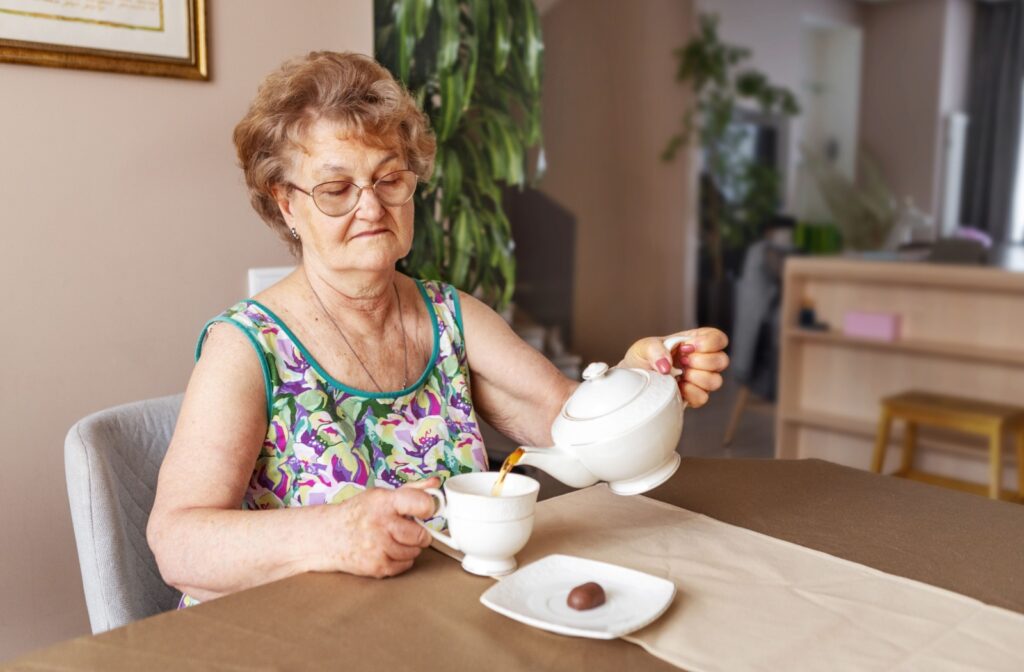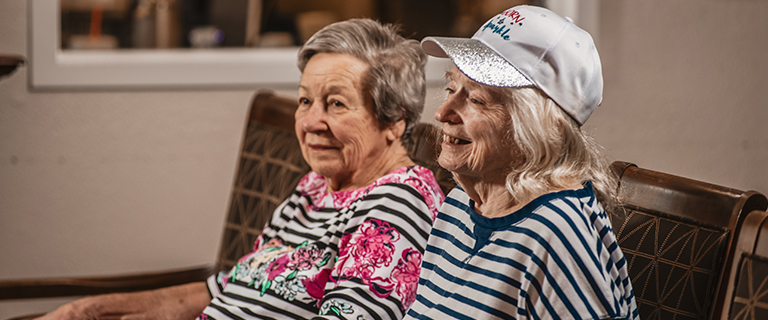Independence is more than the ability to manage daily tasks, it’s a core part of a person’s identity and sense of purpose. For older adults, maintaining their independence can lead to greater emotional well-being, mental clarity, and a higher overall quality of life. As we age, retaining control over our daily routines, decisions, and preferences can help preserve confidence and dignity.
Supporting independence isn’t about going it alone, it’s about empowering seniors to live authentically, with the freedom to make choices while still receiving the care they need. It’s important to understand why independence plays such a vital role in senior well-being, and how thoughtful communities can help make it possible.
Independence Brings Purpose
Many seniors have spent a lifetime building careers, raising families, and contributing to their communities. That sense of purpose doesn’t disappear with age. Maintaining independence helps older adults continue to feel valued and accomplished.
When older adults are able to choose how to spend their day, make personal decisions, and work toward small goals, it strengthens their sense of identity and meaning.
Why it matters:
- Promotes mental well-being: Achieving small goals—like folding laundry, preparing a light meal, or tending a garden—can boost mood and reduce symptoms of depression.
- Encourages active participation: Independent seniors are more likely to attend events, join clubs, or pursue hobbies that bring joy and connection.
- Enhances emotional balance: Having choices contributes to a more positive outlook, helping seniors feel more in control of their lives.
Individuality Is Important, Even in Older Years
Each person’s background, values, and interests shape who they are. Holding onto that individuality—even as needs change—is crucial for aging well.
Losing autonomy can lead to feelings of frustration or disconnection. When decisions are made on someone’s behalf without their input, this can affect their willingness to engage with others or participate in activities.
The risks of reduced independence include:
- Emotional withdrawal or isolation
- Increased resistance to care or assistance
- Loss of confidence and identity
Preserving personal preferences—whether that’s choosing what to wear, what to eat, or how to spend free time—helps seniors stay engaged and emotionally resilient.
Maintaining Control Is Empowering
Aging often brings physical, cognitive, or lifestyle changes that can challenge a person’s sense of control. However, finding ways to maintain decision-making power—especially in daily routines—can foster confidence and autonomy.
Examples of meaningful control include:
- Creating a personal morning or evening routine
- Choosing how to decorate or organize their living space
- Having input on meals, clothing, or activity preferences
- Being involved in health and care decisions
Empowering seniors to make these choices helps reinforce dignity and respect, even in assisted living settings.

The Benefits of Independence for Seniors
Independence is deeply connected to overall health. It encourages mental stimulation, physical activity, and social engagement, three essential pillars of well-being for aging adults.
Supports Cognitive Health
Making choices, solving problems, and sticking to routines keeps the brain active. Simple tasks like managing a schedule, reading, or engaging in a hobby can stimulate memory and critical thinking.
Promotes Physical Wellness
Independence often involves some level of physical activity, even if it’s light. Tasks like walking to meals, participating in gentle fitness classes, or helping with chores can support strength, balance, and coordination.
Strengthens Relationships
Strong relationships contribute to happiness. When older adults feel confident and engaged, they’re more likely to participate in community life. Joining conversations, attending events, or sharing a meal with friends enhances connection and emotional support.
What Affects a Senior’s Ability to Stay Independent?
While independence is a goal for many, several factors can influence how much autonomy a person can safely maintain. The key is finding the right balance between independence and support.
Declining Physical & Cognitive Health
Mobility challenges, memory loss, or chronic health conditions can make it harder to complete daily tasks safely. Having the right support system—whether that’s assistive devices or caregiver help—allows seniors to continue doing what they can while minimizing risk.
Inability to Perform Daily Abilities
Even small tasks like grooming, preparing meals, or managing medications require coordination and focus. Recognizing when support is needed helps prevent accidents and keeps independence sustainable.
Lack of Financial Resources
Affordability can impact what kind of support or housing a senior can access. Communities that offer personalized care plans and flexible options can help older adults maintain autonomy without financial strain.
Balancing Support With Independence
The goal of senior living shouldn’t be to take over, it should be to lift up. When older adults receive care that’s tailored to their specific abilities and preferences, they’re more likely to stay independent, confident, and happy.
A supportive senior living community should offer:
- Help when needed, but not more than necessary
- Activities that promote participation and self-expression
- Opportunities for residents to make meaningful choices every day
- Environments that are both safe and empowering
Choosing a Community That Prioritizes Independence
Every older adult deserves to feel respected, supported, and in control of their life. When exploring senior living options, look for a community that values independence as much as safety, where routines are flexible, preferences are honoured, and dignity is always at the forefront.
At Parsons House La Porte in La Porte, TX, we understand how vital independence is to emotional and physical well-being. That’s why our community is built around personalized support that empowers residents to live on their terms.
Whether it’s choosing from a variety of engaging activities, enjoying a peaceful moment in the garden, or setting daily routines, our residents are encouraged to live life with purpose and confidence.
Schedule a tour today to learn how we help seniors stay independent, supported, and truly at home.



